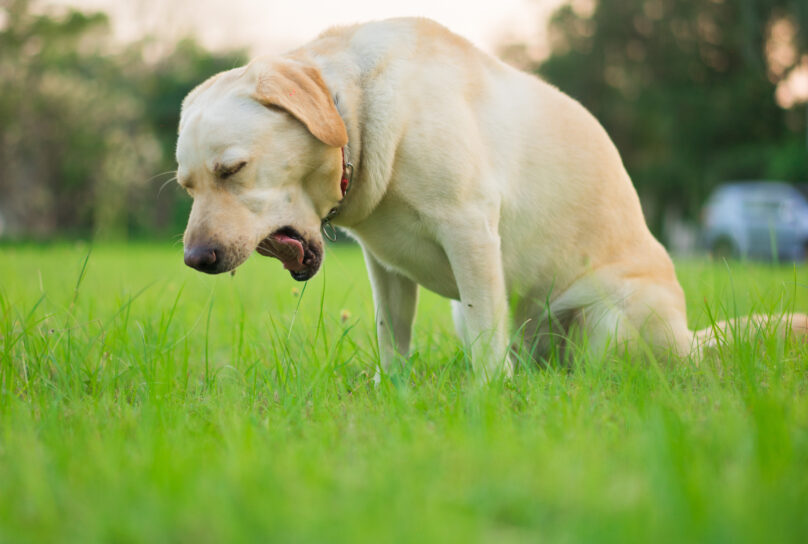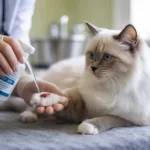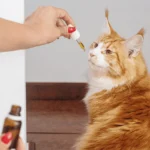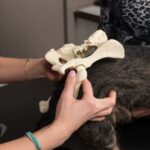
Contents
If your cat has been coughing or sneezing frequently, it’s important to understand the potential causes. While occasional coughing or sneezing may not be a cause for concern, persistent or severe symptoms could be a sign of an underlying health issue. One common condition that affects cats and causes coughing is kennel cough.
Kennel cough in cats is an infectious respiratory disease that can cause symptoms similar to other illnesses, including allergies and respiratory infections. Differentiating between these conditions can be challenging, but with the right information, you can better understand your cat’s symptoms and seek the appropriate treatment.
In this blog, we’ll help you recognize the symptoms of kennel cough in cats, how to treat it at home if appropriate, and when to seek professional veterinary care.
What is Kennel Cough in Cats?
Kennel cough (also known as canine infectious tracheobronchitis) is a highly contagious respiratory illness that primarily affects dogs but can also affect cats, especially those who are exposed to other animals in communal settings like shelters, boarding facilities, or pet stores. In cats, Kennel cough is caused by a combination of bacteria and viruses, including Bordetella bronchiseptica, a bacterium that is a major contributor to the disease.
Although it is more common in dogs, cats can contract kennel cough from other animals or by exposure to contaminated environments. The disease is characterized by a persistent, dry cough and is usually accompanied by sneezing and nasal discharge.
Symptoms of Kennel Cough in Cats
Recognizing this cough in cats can be challenging because the symptoms are similar to those of other respiratory illnesses. Here are the most common symptoms of this cough in cats:
- Persistent Coughing
The hallmark symptom of kennel cough is a persistent dry cough. It may sound like a honking or hacking cough, and your cat may cough repeatedly in a short span of time. The coughing may worsen during or after physical activity or excitement. - Sneezing
Cats with kennel cough often sneeze as well. This is due to the irritation in their airways caused by the infection. Sneezing may be frequent and accompanied by nasal discharge. - Nasal Discharge
A watery or thick discharge from the nose is a common symptom. The discharge may be clear initially but can become yellow or green if a secondary bacterial infection develops. - Loss of Appetite or Lethargy
If your cat is feeling unwell due to kennel cough, they may lose their appetite or seem unusually tired. This can result from the discomfort of coughing or from the infection itself. - Fever
In some cases, a cat with kennel cough may develop a mild fever. If your cat’s body temperature rises significantly, it may indicate a more severe infection, and you should contact your vet immediately. - Difficulty Breathing
If the infection progresses, your cat may exhibit labored or shallow breathing, especially if the trachea (windpipe) becomes inflamed. Difficulty breathing requires immediate veterinary attention.
How to Differentiate Kennel Cough from Allergies or Infection
It can be difficult to distinguish between kennel cough, allergies, and respiratory infections, as the symptoms often overlap. Here are some key differences to help you identify the condition:
- Onset and Duration of Symptoms
Kenel cough usually develops suddenly and is characterized by a persistent dry cough that can last for several days to weeks. Allergies, on the other hand, may cause milder symptoms like sneezing and watery eyes, but these symptoms tend to be chronic or seasonal. Respiratory infections, whether viral or bacterial, tend to cause a combination of symptoms, including coughing, sneezing, nasal discharge, and sometimes fever. - Cough Characteristics
The cough caused by kennel cough is typically dry and hacking, sometimes sounding like a honking noise. In contrast, a cat with allergies may have a soft, intermittent cough or may primarily sneeze without much coughing. Cats with a respiratory infection (like feline viral rhinotracheitis or calicivirus) may have a wet, productive cough with more mucus or phlegm. - Additional Symptoms
While allergic reactions often lead to itchy eyes, ears, or skin, they rarely cause a productive cough or nasal discharge. If your cat has clear nasal discharge and a mild cough without fever, allergies may be the cause. On the other hand, if your cat has thick yellow or green nasal discharge and a persistent cough with fever or lethargy, it’s more likely to be an infection or kennel cough. - Exposure to Other Animals
Kenel cough is more likely if your cat has been in an environment where other animals, particularly dogs, are present. Respiratory infections can also be transmitted from other animals, especially in crowded or unsanitary environments like shelters. Allergies, however, are typically not linked to exposure to other animals, but rather environmental allergens.
How to Treat Kennel Cough in Cats at Home
If your cat has mild symptoms of kennel cough, you may be able to treat them at home, but it’s important to keep a close eye on their condition and consult your veterinarian if their symptoms worsen. Here are some home remedies for treating this cough in cats:
- Keep Your Cat Warm and Comfortable
Ensure your cat has a warm, quiet place to rest. Avoid stressing them with loud noises or physical exertion. Reducing stress can help their immune system fight off the infection more effectively. - Hydration
Make sure your cat has access to fresh water at all times. Staying hydrated is important for recovery, as it helps thin mucus and soothe their irritated throat. - Humidifier or Steam
A humidifier or steam can help relieve coughing and ease respiratory discomfort. You can place your cat in a bathroom while you run a hot shower to create steam. The moist air can help loosen congestion and soothe irritated airways. - Honey or Coconut Oil
Some pet owners use honey or coconut oil as natural remedies to soothe their cat’s throat. A small amount (1/2 teaspoon) of honey can help calm the cough, while coconut oil has anti-inflammatory properties that may help relieve irritation. Always check with your vet before administering any home remedy. - Avoid Smoking or Strong Odors
If you smoke or use strong cleaning products, avoid exposing your cat to these irritants while they are sick. Strong odors can aggravate the respiratory system and make their symptoms worse.
When to See a Vet for Kennel Cough in Cats
If your cat’s symptoms are severe or do not improve within a few days, it’s important to seek veterinary care. You should see a vet if your cat:
- Develops a fever or appears lethargic or weak.
- Has difficulty breathing, excessive drooling, or signs of pain.
- Has yellow or green nasal discharge or pus from the eyes.
- Refuses to eat or drink for more than 24 hours.
- Experiences worsening coughing or the development of new symptoms, such as vomiting or diarrhea.
Your vet will likely conduct a thorough examination and may recommend tests like blood work, chest X-rays, or culture tests to determine if there’s a bacterial or viral infection, or if your cat is at risk for secondary infections.
Conclusion
Kennel cough in cats can often be managed at home if symptoms are mild, but it’s essential to differentiate it from other conditions, such as allergies or more serious respiratory infections. Early treatment and monitoring your cat’s symptoms can help prevent complications and ensure a speedy recovery. If your cat’s symptoms persist or worsen, be sure to contact your veterinarian for further care.
At North MS Pet Emergency, we specialize in providing emergency care for pets suffering from respiratory conditions, including kennel cough and other infections. If your cat is coughing or showing signs of illness, contact us for professional care.
Contact us now for immediate care, or visit us for emergency care for pets after hours.




